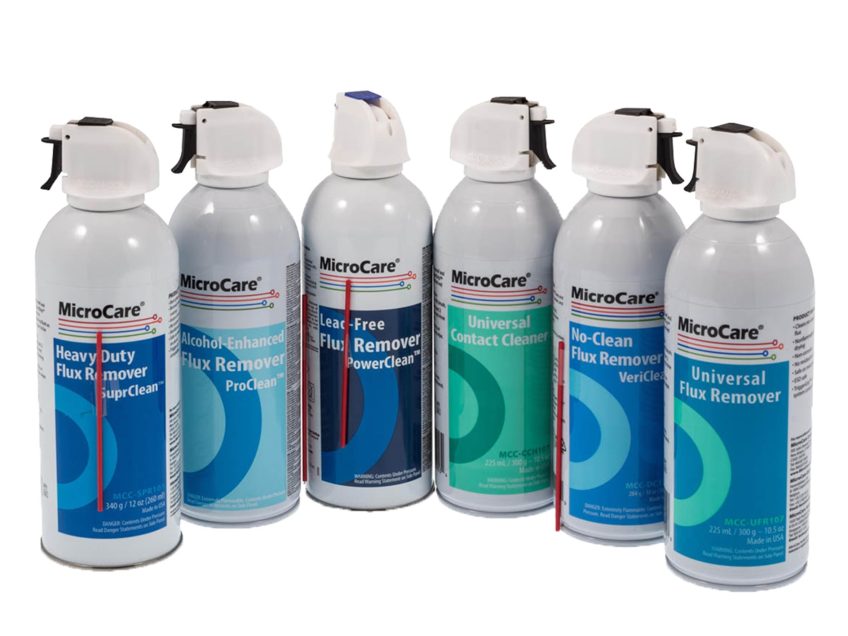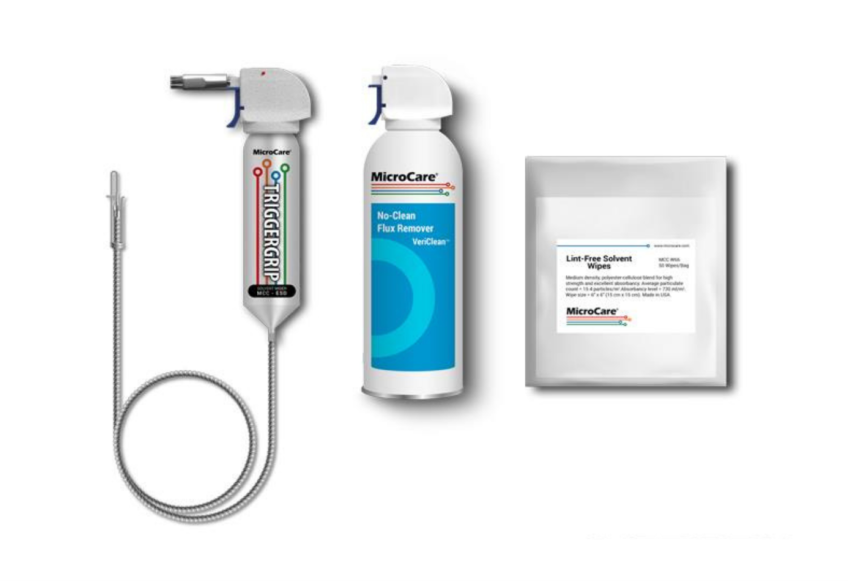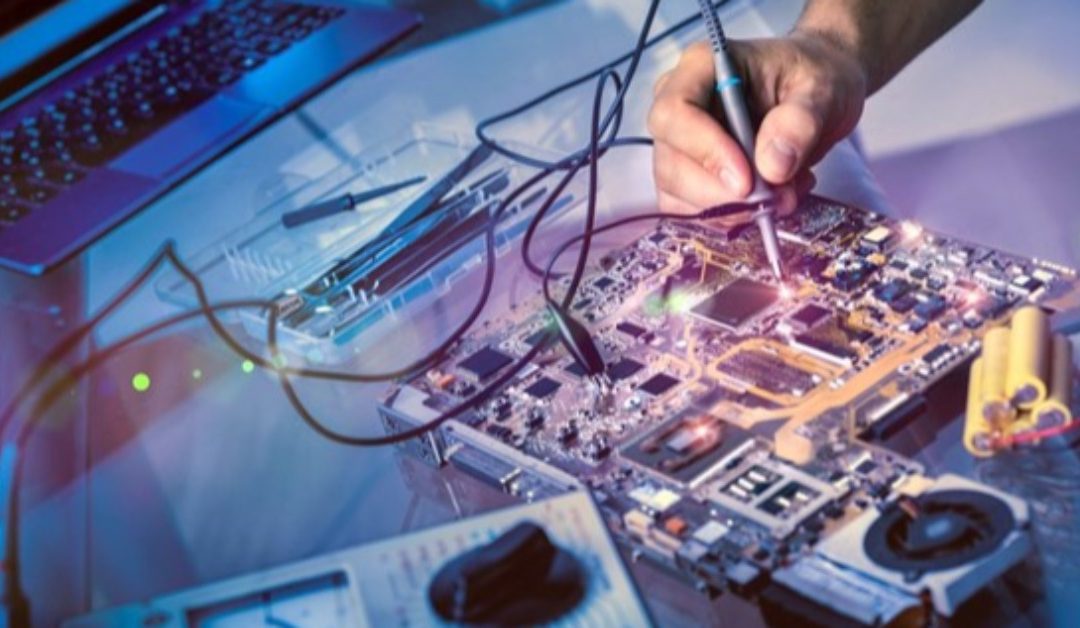Cleaning during the PCB assembly process is crucial both at the initial production stages and after the soldering process. It is essential to ensure that the boards are free from any contaminants, such as adhesives, flux residues, fingerprints, and other unwanted materials, before moving to the next production stage or being sent to the customer. These contaminants can negatively affect the performance and reliability of the device, emphasizing the importance of the cleaning process. Effective removal of these contaminants is a critical step that directly impacts the quality and reliability of finished electronic products, in both consumer and industrial electronics. For this reason, PCB cleaning is considered extremely important by manufacturers to ensure that devices will operate reliably throughout their usage period.
With the increasing complexity of printed circuit boards, driven by the ever-smaller component sizes and the growing complexity of their geometry, the cleaning process is becoming more demanding. This issue is further exacerbated by the use of strong and active fluxes. While strong fluxes effectively minimize the risk of defects such as cold solder joints, bridges, or short circuits, their presence increases the difficulty of effective cleaning. This is particularly true for modern, densely packed boards where traditional cleaning methods may not be effective. In response to these challenges, PCB manufacturers are developing advanced and effective cleaning processes.
Modern method of cleaning printed circuit boards on the workbench
One of the most effective ways to clean any printed circuit board is to use an automated cleaning process, such as an automatic PCB cleaner. However, automatic cleaning is often impractical, for example, if spot cleaning is required before adding components after wave soldering. A stationary technician needs a quicker, more affordable, and convenient solution.
In such cases, quick, economical, and practical solutions like the ECO 2000 cleaner, used in combination with a cleaning agent tailored to the specific boards and components, can be the ideal choice for a controlled and comprehensive cleaning process. This approach offers an effective and tailored cleaning solution, which is crucial for maintaining the high quality and reliability of modern PCBs.
Choosing the right cleaning fluid
Selecting the appropriate cleaning fluid for PCB is a crucial first step in ensuring excellent cleaning of printed circuit boards. The wide range of products available on the market allows for the selection of a flux remover that will work in specific conditions. The fluids are designed to penetrate under tightly fitted components and effectively remove flux residues before they can cause any corrosive effects. Depending on their composition, they should be capable of dealing with various contaminants such as oils from fingerprints, uncured solder pastes, protective coatings, marking inks, and more.
When choosing the most suitable cleaning fluid, it is important to accurately determine the type of contamination. A full range of cleaning products can be found in the assortment of companies like MicroCare. For example, to remove residues of lead-free solder flux, a stronger solvent like PowerClean may be needed, while for cleaning boards from silicone oils, typically found in fingerprints, a milder and safer cleaning agent like VeriClean would be more appropriate.

Another important aspect is considering material compatibility. The stronger the solvent, the greater the risk of damaging the cleaned material, especially in the case of plastics. It is recommended to conduct tests on a smaller scale or on individual components to ensure that the chosen cleaning fluid is safe for the materials used. In case of any doubts, it is worth consulting with a Technical Sales Advisor.
Better cleaning control with a dispensing tool
Using a controlled dispensing system in the PCB cleaning process can significantly improve cleaning effectiveness and efficiency, as well as increase worker safety. By using a TriggerGrip system, which is connected directly to the cleaning fluid container, technicians can precisely control the amount and location of the applied fluid. This allows for spot application of the cleaning agent, and the brush at the end of the dispenser can be used to clean even the most stubborn contaminants. The dispensing system with a brush makes it easier to reach even the most inaccessible areas, such as spaces under low-mounted components. The cleaning efficiency is enhanced by combining the cleaning fluid’s action with the mechanical action of the brush, allowing for quick dissolution and removal of contaminants with minimal fluid usage.

Controlled dispensing not only increases cleaning efficiency but also helps reduce waste. These systems are designed to maximize the use of the container’s contents, minimizing the amount of unused cleaning fluid. This makes it easier to dispose of the containers without worrying about residual fluid.
MicroCare products in the RENEX group’s offer
MicroCare products are part of the extensive offering of the RENEX Group. This collaboration strengthens RENEX’s position as a supplier of high-quality solutions for the electronics industry. Thanks to it, the Group can offer its customers advanced MicroCare PCB cleaning products, including precise fluids, wipes, and the TriggerGrip system. This positively affects customer satisfaction, allowing for the optimization of their production processes.
The RENEX Group stands out in the market by offering top-quality products and services. Customers can benefit from the Technology and Training Center and the DEMOROOM, where the latest technologies in electronics and robotics are presented. Customers have the opportunity to test MicroCare products at the RENEX Technology Center in conditions that correspond to actual production, which is crucial when choosing the most appropriate solutions.
Both MicroCare and the RENEX Group emphasize quality and safety, ensuring customer satisfaction with purchased products and providing comprehensive support at every stage of cooperation. With extensive knowledge, experience, and production capabilities, the RENEX Group is prepared to meet even the most demanding customer expectations. Technical Sales Advisors maintain constant contact with customers to monitor their experiences and assist in implementing subsequent orders. The individual support of a Technical Sales Advisor is based on presenting the offer and selecting appropriate solutions for the customer at the RENEX Group’s Technology Center and at the customer’s location. To learn more about the available solutions and take advantage of professional advisory services, simply visit the website: https://www.renex.pl/wizyta-doradcy/.

